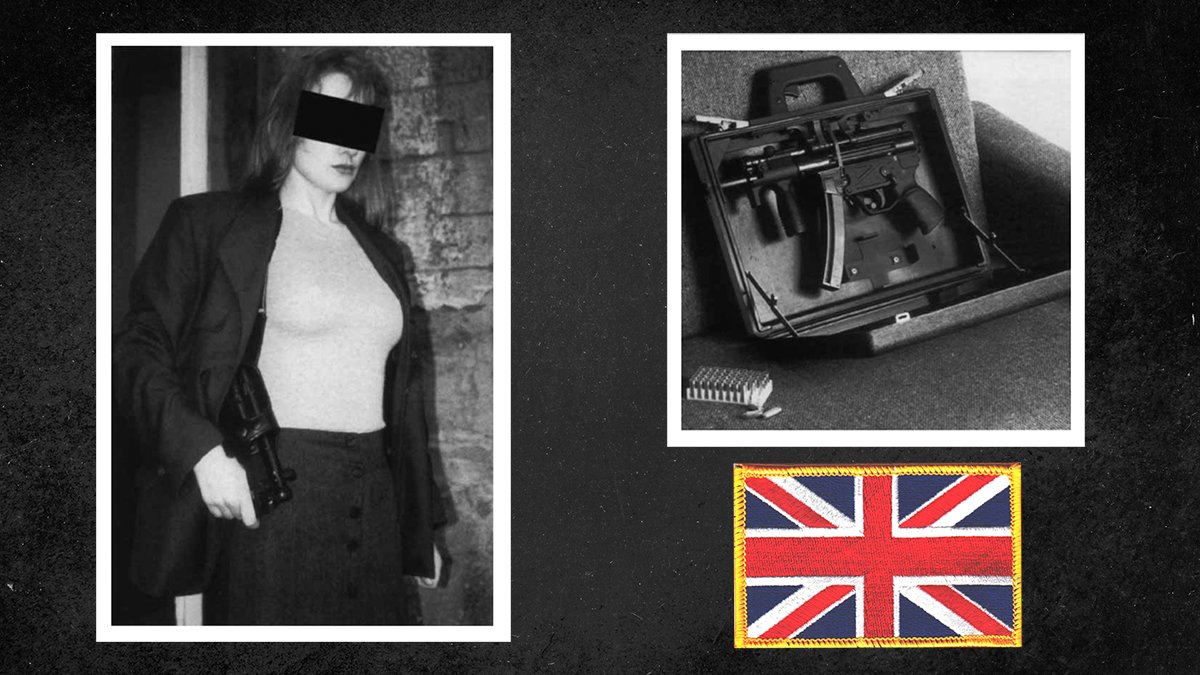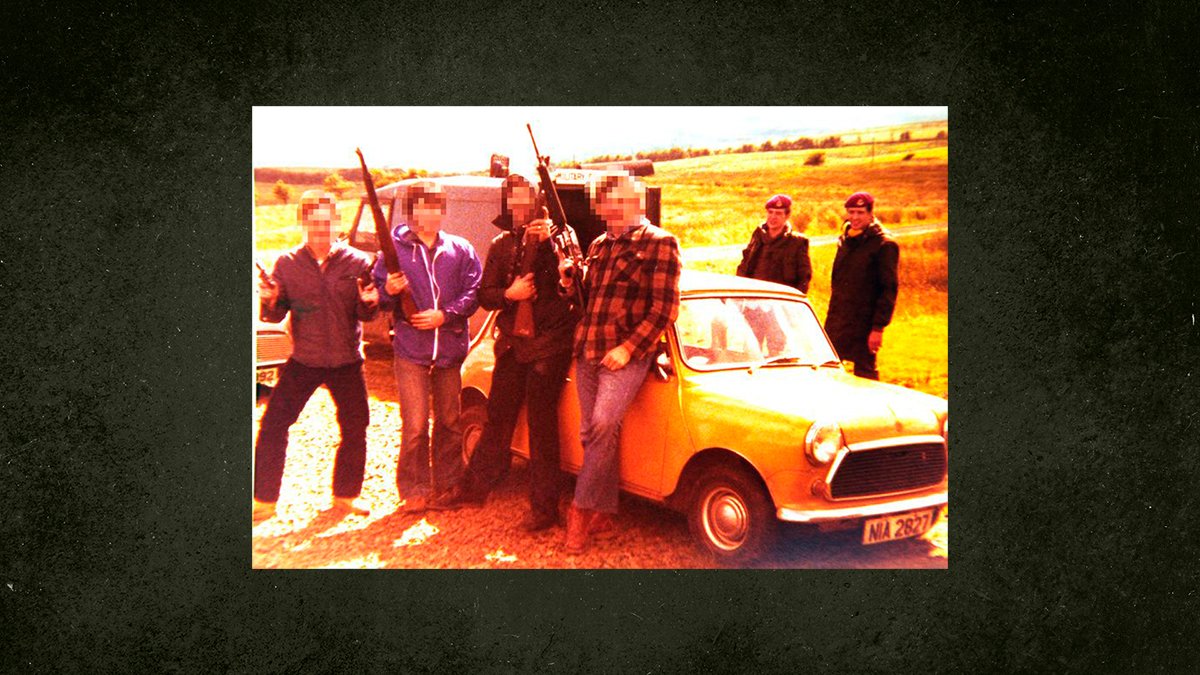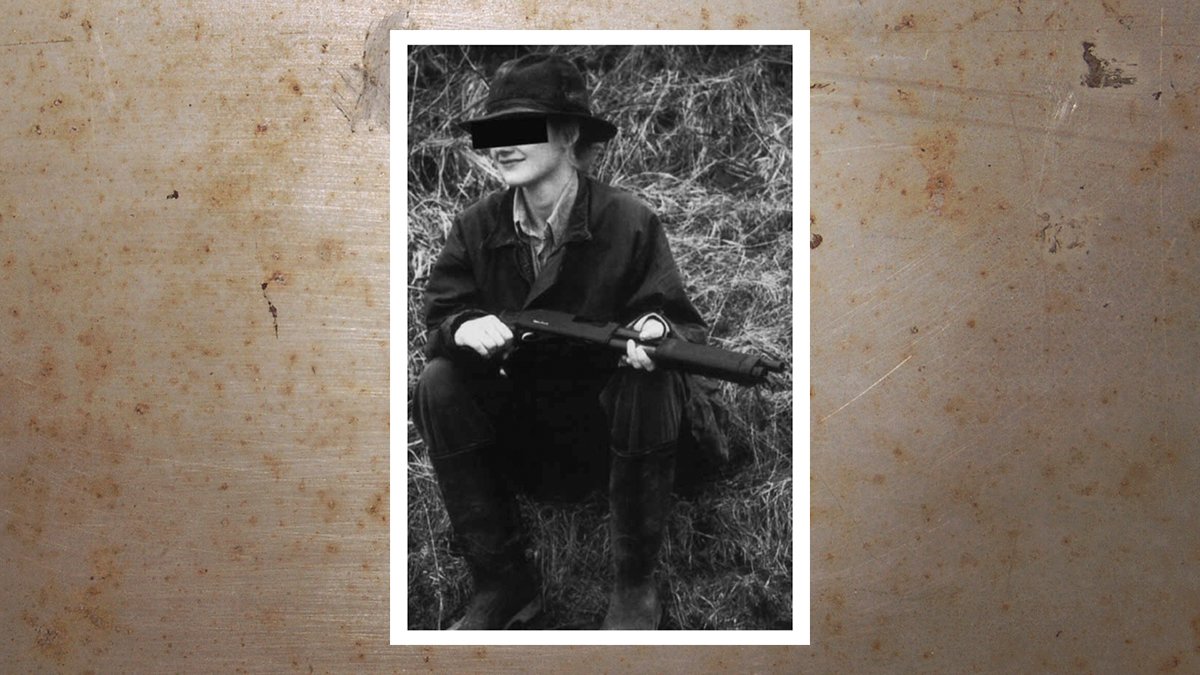The Four Square Laundry Service and the Undercover Female Operator Who Ran It

A woman wearing an MP5K submachine gun on an underarm swivel sling suspended from a shoulder holster. She had pulled the barrel forward for the camera — normally it hangs out of sight beneath the jacket, leaving both her hands free. Under her left arm are suspended two spare magazines in a separate holster. Photos courtesy of the book The Operators: On the Streets With Britain’s Most Secret Service by James Rennie. Composite by Matt Fratus/Coffee or Die Magazine.
A green Bedford Commer van with the name Four Square Laundry painted on its side pulled into the Twinbrook estate neighborhood on the outskirts of Belfast. Sarah Jane Warke opened the passenger door, stepped out, and approached the front entrance of a home to collect dirty laundry from the occupants inside. The door-to-door laundry service was convenient, and the discounted prices were unmatched by other laundromats.
Warke was a familiar face in the Northern Ireland suburbs. “And people liked Sarah, a pretty, ingratiating young woman,” writes Patrick Radden Keefe in Say Nothing: A True Story of Murder and Memory in Northern Ireland, which was named one of Time magazine’s 10 Best Nonfiction Books of 2019. “A housewife came to the door, and she and Sarah were exchanging a few words when suddenly they were interrupted by a cracking noise.”
Warke spun around and saw two men, one with a rifle and another with a machine gun, crouched with their backs facing her. The noise was gunfire, and Warke watched their bullets enter the driver’s side of the Four Square Laundry van, striking Ted Stuart and killing him instantly. In seconds the gunmen had pulled off a deliberate execution, while Warke stood frozen in the doorway. One of the gunmen pointed his weapon at Warke, and she reacted by pushing the woman inside her home away from the violence. Unwilling to admit her true intentions, Warke lied to the housewife that it was a loyalist ambush, and the homeowner helped her escape out the back door.

Stuart was not, in fact, a small business owner with an expertise in laundry. Neither was his colleague Warke. The pair had volunteered to join the Military Reaction Force (MRF), a newly formed British Army special missions unit whose members wore plainclothes, drove civilian vehicles, and sometimes disguised themselves as drunks to conduct intelligence-gathering operations targeting the Provisional Irish Republican Army (IRA).
In 1969, the IRA had separated into splinter groups, with the Dublin-based “officials” who were advocates for peace and the Belfast-based provisionals or “provos” who were advocates for bloodshed. In response to the violence, the MRF was established in 1971 and was operational for 18 months. In 1972 alone, there were 10,600 shootings in Northern Ireland, and the MRF were suspected of being actively involved during the height of the Troubles.
Warke’s Four Square Laundry business was a front company used to camouflage the MRF’s espionage mission in Belfast. The laundry van was used for surveillance; British SAS soldiers could capture photographs of potential targets while concealed in the van’s roof. The two operators behind the wheel and in the passenger’s seat, in this instance, Stuart and Warke, used the dirty laundry scheme as a means to investigate suspected IRA members’ involvement in the conflict.

Once a week Warke arrived to collect the laundry, then returned a few days later with clean and folded outfits. While the laundry was in their possession, the MRF tested the clothing using forensic examination for explosive residue or gunpowder to determine whether the homeowners were participating in IRA activities.
The MRF had roughly 40 members, and details revealed in a documentary released in 2013 finger the controversial special missions unit as responsible for much more than spying — they allegedly killed innocent civilians. The victim’s families allege the MRF was out of control, and one former member referred to the unit as a “legalized death squad.”
“We were not there to act like an army unit, we were there to act like a terror group,” said one unidentified former member of the MRF who didn’t disclose his name out of concerns for his safety.
And despite the covert laundry business being viewed as a success, the unit’s informant network was infested with double and triple agents. Kevin McKee, a former member of the youth wing in the IRA, had been flipped by the British, then flipped again by the IRA. In an interrogation room he confessed to the IRA he was a traitor — except they didn’t execute him on the spot. Instead they used him to spy against the British. McKee informed the IRA about the MRF’s sophisticated intelligence-gathering network in Belfast, and at 11:15 a.m. on Oct. 2, 1972, the provos launched three simultaneous attacks on known MRF personnel: an office in the city, a massage parlor, and the Four Square Laundry van.
Lance Cpl. Sarah Jane Warke of the Women’s Royal Army Corps was later awarded the Military Medal for bravery in September 1973 for her role in the laundry operation, as well as for additional work in Northern Ireland that the British Ministry of Defence did not disclose.

Matt Fratus is a history staff writer for Coffee or Die. He prides himself on uncovering the most fascinating tales of history by sharing them through any means of engaging storytelling. He writes for his micro-blog @LateNightHistory on Instagram, where he shares the story behind the image. He is also the host of the Late Night History podcast. When not writing about history, Matt enjoys volunteering for One More Wave and rooting for Boston sports teams.
BRCC and Bad Moon Print Press team up for an exclusive, limited-edition T-shirt design!
BRCC partners with Team Room Design for an exclusive T-shirt release!
Thirty Seconds Out has partnered with BRCC for an exclusive shirt design invoking the God of Winter.
Lucas O'Hara of Grizzly Forge has teamed up with BRCC for a badass, exclusive Shirt Club T-shirt design featuring his most popular knife and tiomahawk.
Coffee or Die sits down with one of the graphic designers behind Black Rifle Coffee's signature look and vibe.
Biden will award the Medal of Honor to a Vietnam War Army helicopter pilot who risked his life to save a reconnaissance team from almost certain death.
Ever wonder how much Jack Mandaville would f*ck sh*t up if he went back in time? The American Revolution didn't even see him coming.
A nearly 200-year-old West Point time capsule that at first appeared to yield little more than dust contains hidden treasure, the US Military Academy said.












